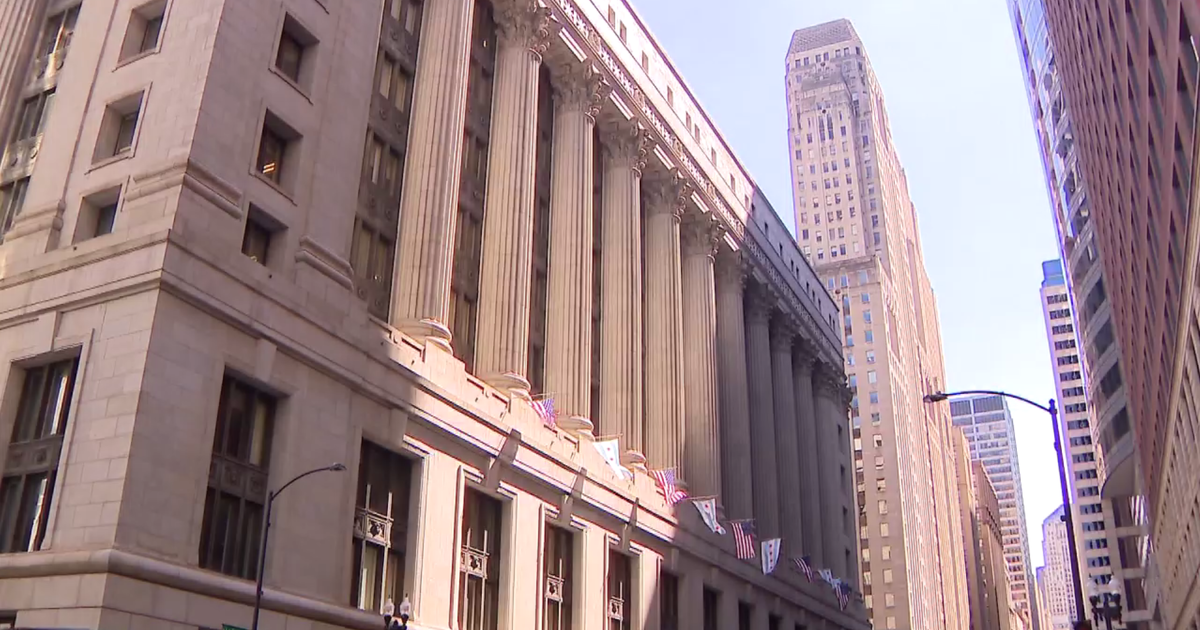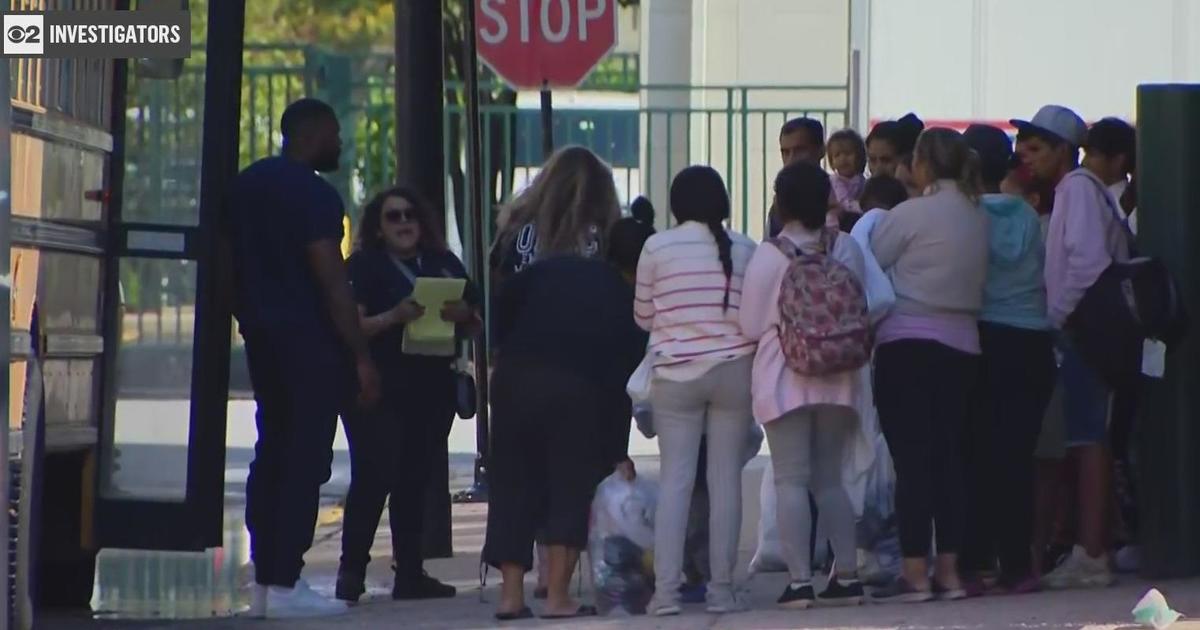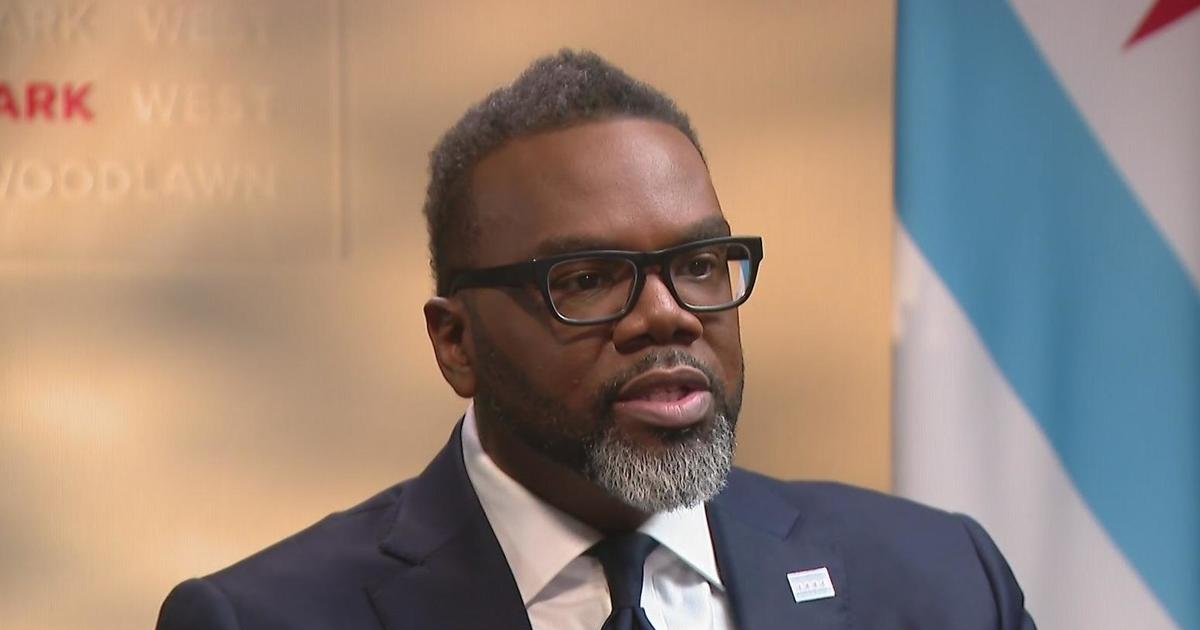Aldermen Fend Off Effort To Kill Mayor Lori Lightfoot's $40 Million Rideshare Tax, Approve 2020 Revenue Package
by Todd Feurer, CBS Chicago web producer
CHICAGO (CBS) -- Moving one step closer to approving Mayor Lori Lightfoot's $11.65 billion budget plan for 2020, the City Council Finance Committee approved the mayor's revenue package on Tuesday, after her allies swept aside an effort by Uber to push through an alternative to her $40 million ridesharing tax hike.
Uber and the Lightfoot administration have been at odds over her plan to increase the city's congestion tax on ridesharing services, which would more than quadruple the fee charged for solo rides in and out of downtown.
As the Finance Committee was weighing the mayor's tax package for the 2020 budget, Ald. Raymond Lopez (15th), one of her most vocal critics, sought to strip out the rideshare tax plan in an effort to force her hand to negotiate with Uber on the alternative it was offering.
"Why we're all here is because we're trying to find new revenue, we're trying to find new money," Lopez said. "For this administration to say 'Well, we're worried about whether there's two people in an Uber or one, so we're going to skip out on $10 million,' at a time when we know this budget is already off, next year's going to be worse, why would we just shut the door on that from the very beginning?"
However, Lopez's motion to strip out the mayor's rideshare tax from the revenue package was rejected by a 22-5 vote by the Finance Committee.
While the mayor's budget team has said it is confident not only that the city will bring in $40 million in new revenue from her congestion tax on rideshare services, but that their estimates are conservative, Lopez said it would make more sense to take up Uber on its offer to guarantee $50 million in revenue.
"Wouldn't it be more beneficial for the city of Chicago to go that route than to say that we are confident that we're going to hit our marks? Because every time we've heard the word confidence this budget cycle, we have failed miserably," he said, referring to the mayor's failure to get Springfield to approve her proposal for a graduated real estate transfer tax approved in Springfield.
The Lightfoot administration has been deeply skeptical of Uber's offers of alternative congestion tax plans, which the company has said would raise more revenue. According to published reports, the company's latest offer this week would have included a guarantee that rideshare companies would make up the difference if their plan did not bring in at least $50 million a year in new revenue.
Chicago Business Affairs and Consumer Protection Commissioner Rosa Escareno said the company's latest offer amounted to little more than a list of bullet points, and did not include any supporting data to back up its revenue projections.
"We have many concerns with the most recent proposal. We have seen actually four different proposals from Uber, all of which have been extremely questionable," Escareno said.
In particular, Escareno noted the alternatives offered by Uber would have set lower tax rates than the mayor's plan, yet the company claimed it would bring in more revenue.
Ald. Brendan Reilly (42nd) cautioned against trusting any guarantees from Uber regarding its alternative tax plan, saying it "was not a good faith proposal."
"This was please get us off the hook, let's find some way to slow this thing down," he said. "They showed up when they got scared."
Reilly said it's been a pattern for so-called "sharing economy" companies like Uber and Airbnb to make dubious promises when they're facing the possibility of increased regulation or taxation.
"When they say trust me, think twice," Reilly said. "They get away with just as much as they can, whenever they can, and if they're up against the wall, suddenly altruism. How can we help our partner, the city of Chicago?"
Uber spokeswoman Kelley Quinn said it was unfortunate that the mayor's rideshare tax plan was approved without considering Uber's alternative plan.
"We have had months of conversations with the Mayor's office and have tried to adapt our proposal to meet their goals, and also raise more money for the city. Unfortunately, the City has refused to make any changes to its proposal, despite concerns from tens of thousands of riders and drivers, editorial boards, community leaders and aldermen about how the fees will impact Chicagaons who don't have other options and don't take a trip near downtown," Quinn stated in an email.
After brushing aside Lopez's effort to block the mayor's rideshare tax plan, the Finance Committee approved her full revenue package, including her rideshare tax proposal. Lightfoot's tax plan also includes lowering the license fee for taxicabs from $1,000 to $500, raising parking meter fees in the Loop and Central Business District, and charging small non-profits $9.50 a month for trash collection.
Some aldermen raised concerns about the plan to begin charging small non-profits for garbage collection, questioning whether they could afford the cost.
Streets and Sanitation Commissioner John Tully said the city decided to end free trash collection for smaller non-profits in light of an inspector general's report that revealed there is nothing in the law that allowed the perk.
Larger non-profits – those with net assets of more than $1 million or those that use more than 10 garbage carts – are required to pay for private trash collection.
The Finance Committee alsosigned off on a plan to refinance $1.5 billion in existing city debt, to help save an estimated $210 million next year; and approved the mayor's proposed $1.539 billion property tax levy for 2020, which is a $65 million increase over this year's levy.
The property tax hike includes $18.4 million Lightfoot sought to pay for opening the city's public libraries on Sundays. It also includes $33 million to $35 million aldermen approved before Lightfoot took office to pay off bonds, and $12 million to $15 million in revenue the city expects to collect from new construction, similar to the boost the city gets every year from new properties.
The Budget Committee on Monday approved the mayor's 2020 spending plan. The revenue package and spending plan will be put before the full City Council on Wednesday, with a final vote scheduled for next Tuesday.


